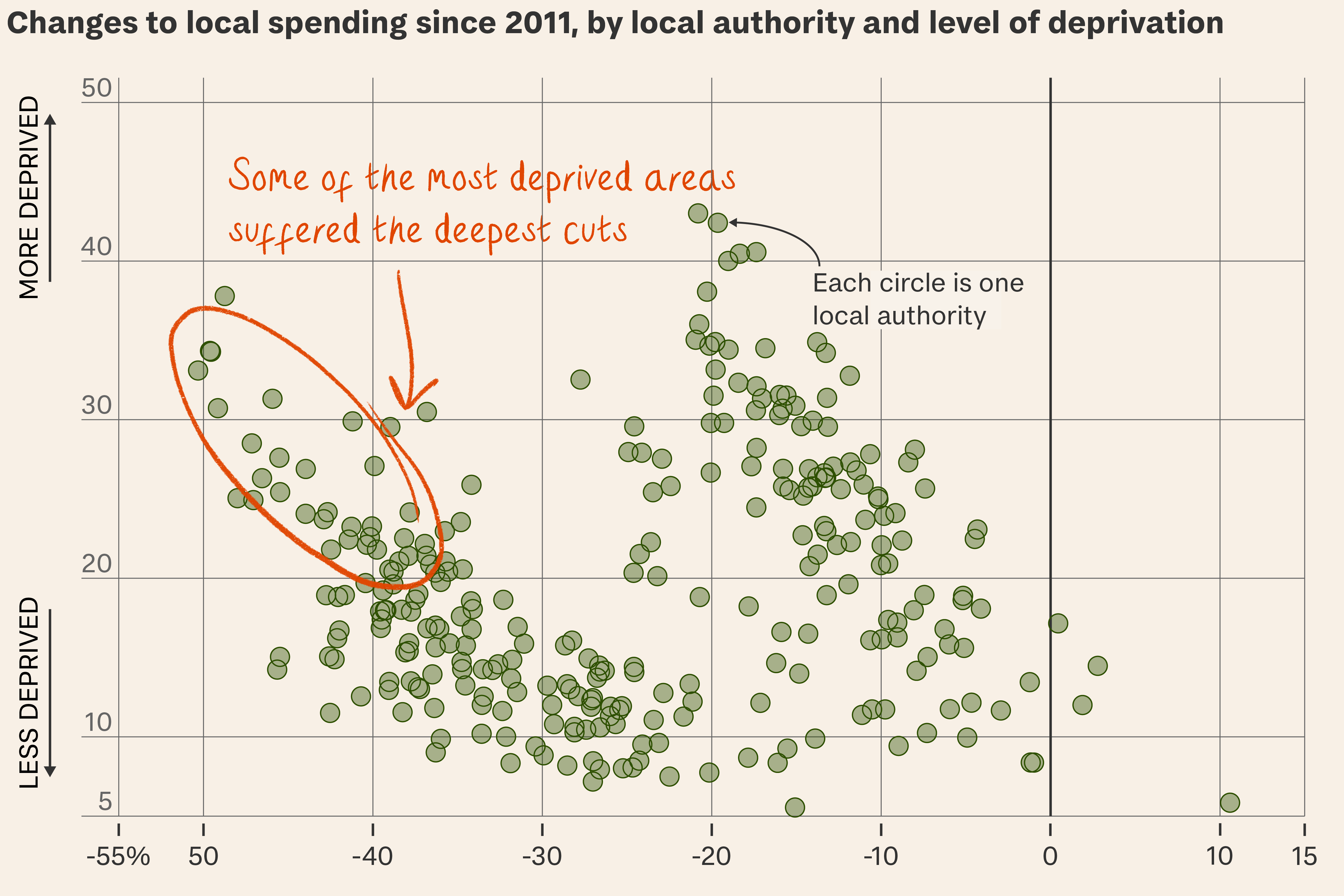
In February, the UK government allocated £600 million in emergency funding for local governments to get them through the next financial year.
So what? It won’t be enough. Ten times as much is needed. An active choice by successive Conservative administrations to deny local authorities funds and the means to raise them – including during a decade of near-zero interest rates – has left councils facing a £6.2 billion shortfall over two years.
The story of how it has come to this has been a drama in three acts:
- Take not give. Cuts to local government grants were not offset by promised powers to raise money locally.
- Mandatory spending. Local governments lost the freedom to decide how to invest in their communities as statutory spending used up more and more of their budgets.
- Coffers dry. More than half of local governments expect to go bankrupt in the next five years.
Key dates trace the decline:
2010-11 Acting on self-imposed rules to reduce debt and balance day-to-day spending, the then chancellor George Osborne cuts central government grants to local authorities by nearly 10 per cent.
2015 Osborne ends grants paid to councils to help them freeze council tax, leaving them scrambling to raise revenues on 2010 tax levels. Councils now have 20 per cent less per capita core spending power on average than in 2011.
To compensate, Osborne says local governments will be able to double their share of local business rate revenue by the end of the parliament. They never do.
2018 A review of central government grants for councils, promised in 2016, comes to nothing. Funding is still distributed based on 2013-14 spending needs. Local government spending power drops to 75 per cent of 2011 levels.
Going bust. Councils’ overall funding and core spending power grows after a nadir in 2021. But many have already built up unsustainable debts investing in dangerous assets to boost revenue. Some are driven to bankruptcy.
- No 1. In 2018, Northamptonshire becomes the first local authority since 2000 to declare insolvency and file a Section 114 notice – meaning spending will exceed income for the year in violation of the Local Government Finance Act 1988.
- Supernova. Failed investments by Thurrock council in solar energy projects drive it into bankruptcy with debts of £1.5 billion.
- Five-star fail. Woking’s investments in risky property like a Four Seasons hotel lead to £19,000 debt per capita and bankrupt the council.
In 14 years… Central government funding for councils has fallen by nearly a third in real terms since 2011. Overall spending has also shrunk by a third on average in the same period.
Ring fences. Adult and children’s social care are protected spending and now take up two thirds of upper tier authorities’ revenues, says Jonathan Carr-West of the Local Government Information Unit.
Outsourced care. Councils are legally required to provide these services – often contracting companies owned by private equity groups. Profiteering is rife in the nearly 25 per cent of the children’s care sector backed by PE.
In-house cuts. All other services have suffered. Council spending in England on planning, cultural services, housing, highways and transport has fallen by more than 45 per cent in the last 14 years.
No fun. Since 2010, local authorities have had to close 764 libraries, 382 swimming pools and 4 in 10 Sure Start Centres.
Not fair. Cuts have fallen disproportionately on the most deprived. Local governments with the highest initial reliance on grants have faced the biggest budget contractions even though they often have to provide the most services with the smallest council tax base.
What’s more… The point of austerity was to shrink the state. It now consumes the highest UK tax take in more than 70 years.













